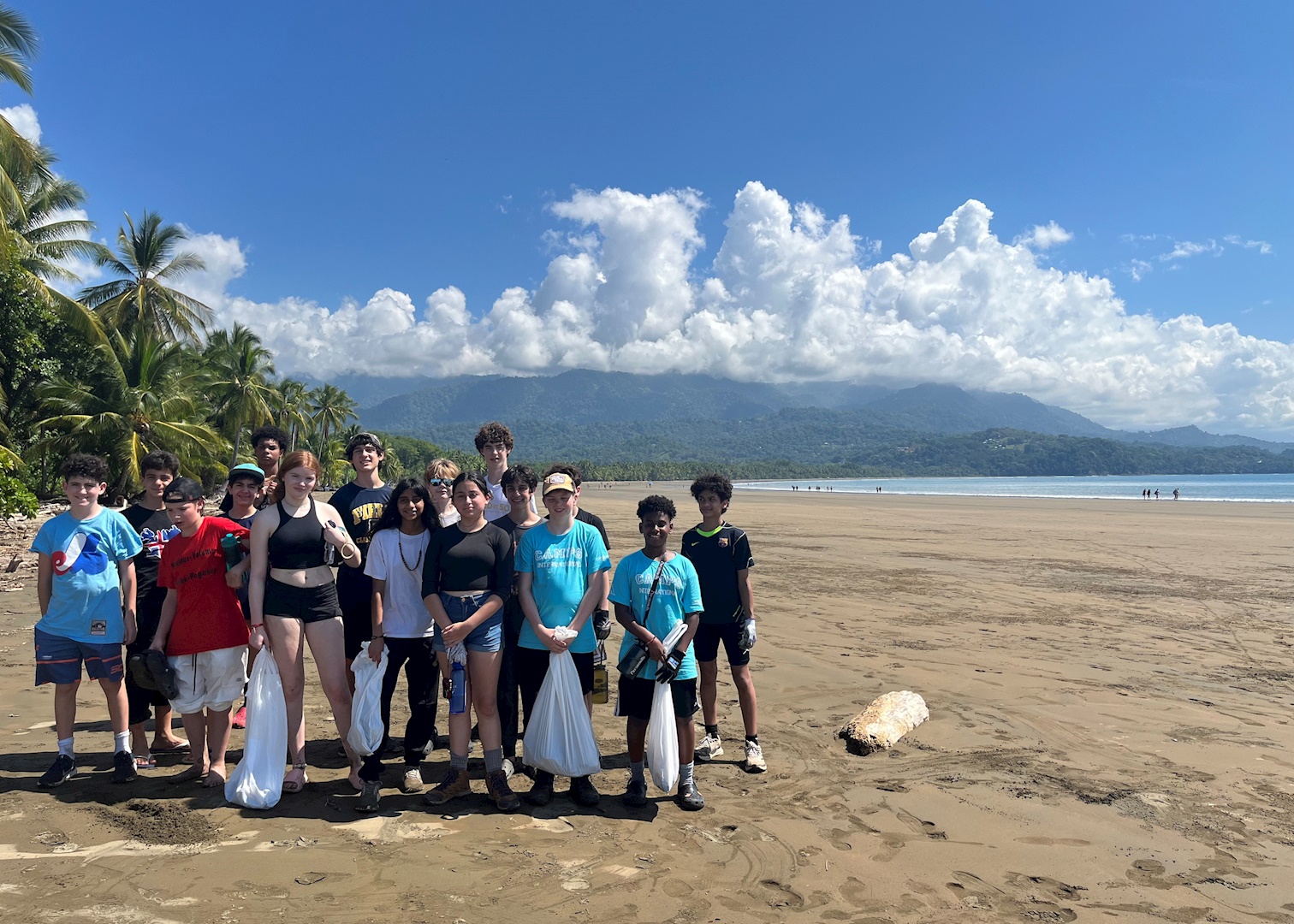
In anticipation of January’s two-week Intersession Program, Dean of Innovation and Experiential Learning Sarah Swain shares the depth and breadth of immersive learning and skill-building experiences for our students.
Just like new teachers hit a stride after three years, Intersession has developed into a comprehensive and cohesive experience in year four. Our registration process kicked off in the Spring of 2024 with plenty of time to introduce a new Internship application process, plan for trips, introduce new courses, and build out additions to the Middle School program. In the lead-up to the winter holidays, you can feel an air of excitement for what is coming in January.
Intersession 2025 will include the signature trifecta of experiences for upper school students to choose from including internships with robust Intern Initiative Projects as a key component bringing value to the host organization, immersion travel courses to France and the American Southeast to study the Civil Rights movement, and a range of immersion courses that partner students with community organizations to research, ideate, and create in the real world. For a second year, those traveling to Atlanta will meet with U.S. Senator from Georgia, Reverend Raphael Warnock at Ebenezer Baptist Church. New additions to the immersion course offerings include the Music Incubator developing student bands to write, arrange, and perform songs in just two weeks; and The Thespian One-Act Competition, which is taking a play to competition. Back by overwhelming demand, Restaurant Cooking was the most popular course during registration and has a fantastic collaboration with the Empty Bowls course which plans a meal fundraiser at the final showcase. We have approximately 100 students embarking on internships throughout the DMV and further afield. There was an overwhelming interest in medical and science-related internships this year with 22% of students securing a science or healthcare-related internship. Marketing, government, education, business, and the Arts were also popular fields. Nearly 10% of students secured their internships by making cold calls directly to an organization or business they were particularly interested in working for, and about half of all interns found their position through The Field School database leads.
The Middle School program is sequenced to build toward the culminating service learning and leadership trip to Costa Rica, a capstone experience for the 8th graders. In 6th grade, students learn about the world and themselves through the World Peace Game as a foundation for interpersonal communication and global issues to better understand bigger challenges in future years. To impact our campus community, their design challenge will be developing solutions to infuse the Field community with more peace. Grade 7 students will learn about food production and security in the DMV region starting with a kick-off overnight experience at Hard Bargain Farm, a part of the Alice Ferguson Foundation, in Accokeek, MD. Students will research and experience UN Sustainability Goals such as #2 zero hunger, #10 reduced inequalities, and #12 responsible production and consumption in depth as they explore food production and distribution in the local region. Their design challenge will be to develop solutions that have positive impacts on food security issues in the DMV. Looking at a wider range of UN Sustainable Development Goals(SDGs), 8th grade students prepare to make a more global impact while learning about the challenges facing Costa Rica. Work throughout the year prepares them to know the purpose and impact of their service work while in the country and prepares them to research their team's SDG.
“The most valuable lesson I learned in Costa Rica was how microplastics negatively affect marine life. We need to do a better job of recycling and minimizing trash because it ends up in the ocean and takes forever to break down.” ~Aidan ‘28
In my experience implementing immersion courses, these opportunities provide students and faculty with opportunities to delve deeply into one area of focus and follow through on research and creative design that leads to real impact in our school community and beyond. This brings a refreshed perspective and energy for the relevance of education.
As showcased in the recent research of the Abdul Latif Jameel World Education Lab at MIT, technological skills are constantly changing. Still, the Matrix of human skills will provide a durable foundation that will “remain valuable across waves of technology-driven change.” Field’s Intersession immersion courses are designed to intentionally build these skills through the pedagogy of project-based learning. Students identify meaningful problems and opportunities and work in teams designing solutions and developing final products to share with stakeholders. This process will hone skills like project management, collaboration, communication, negotiation, creativity, critical thinking, persistence, and initiative.
